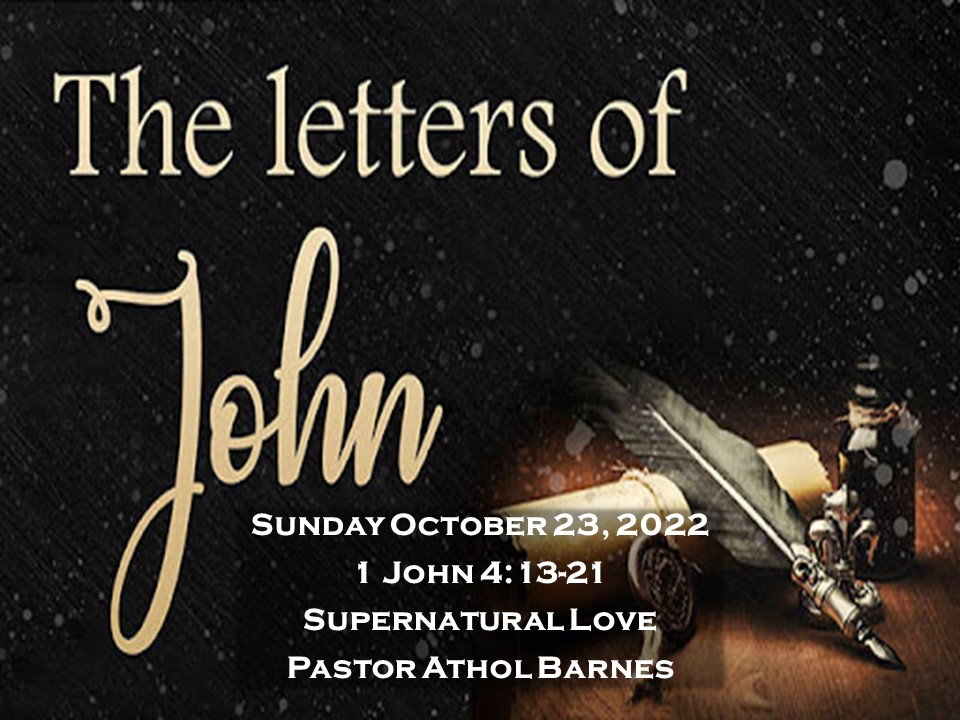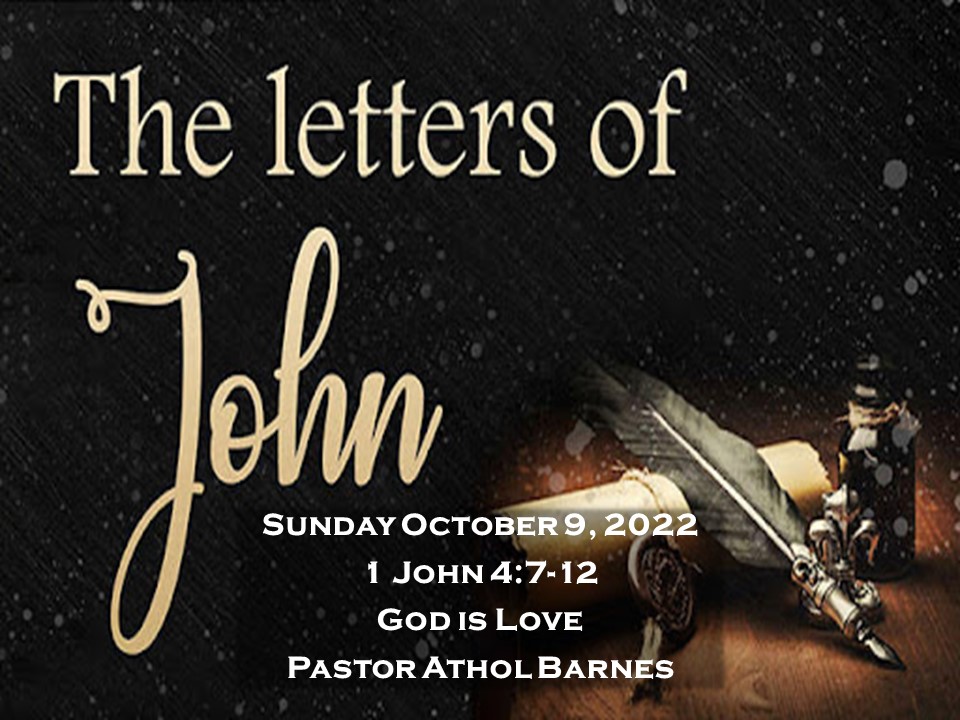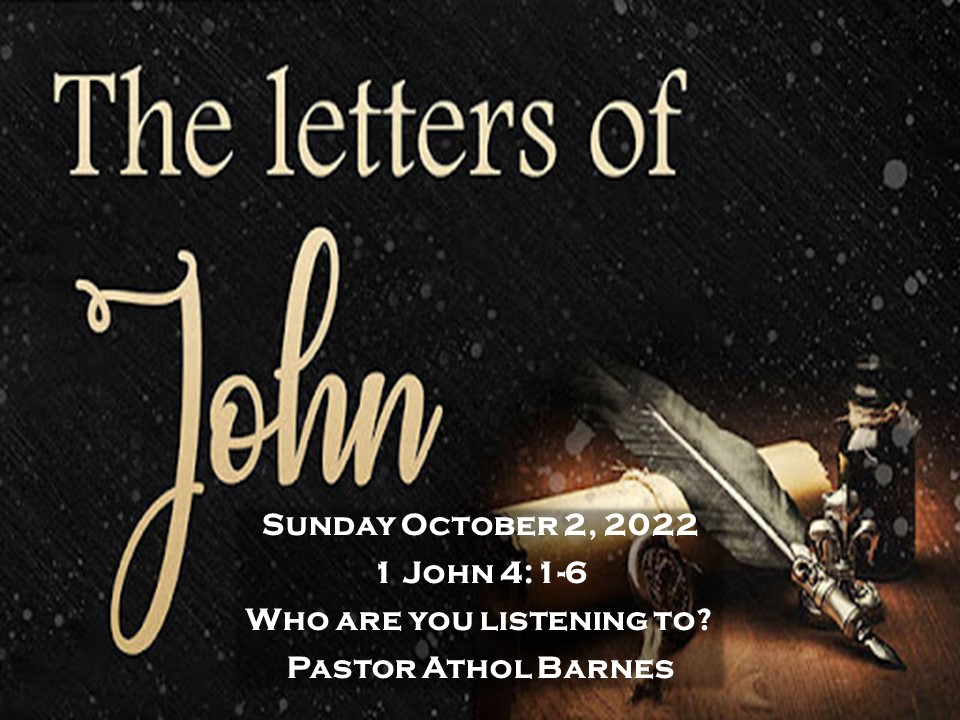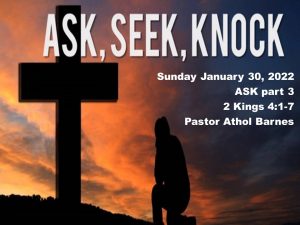
If you confess to be a Christian, how do people know?
It’s not because you wear a t-shirt, have a bumper sticker on your car or post encouraging words on Facebook.
The one defining aspect of a true Christian is love. And not the easy kind of love, loving those who love you in return. The defining mark of a follower of Jesus is to do what Jesus said in Matthew 5:43-44, “You have heard that it was said, ‘You shall love your neighbor and hate your enemy.’ But I say to you, Love your enemies and pray for those who persecute you.”
That is a great memory verse, easy to say…until someone begins to persecute you.
I have heard dozens of people, claiming to be followers of Jesus, who say, “well I just can’t love that person, that’s just the way it is.”
The Bible says if you can’t love your enemies, you are not saved. But, the good news is that being filled with the Holy Spirit, we have the power to love our worst enemy.
Our actions are determined by our identity.
Loving as Jesus commands can seem impossible. Even loving our brothers and sisters in the church can be challenging at times. But we can love by the power of God living in us.
We need to remember our identity in Christ.
Abiding in Christ forms our identity, and as a result, abiding empowers love.
How do we know if we are abiding in Christ?
1 John 4:13 is the answer, “By this we know that we abide in him and he in us, because he has given us of his Spirit.”
Abiding in Christ is only possible because God fills us with His presence in the Holy Spirit. And notice the verse says, “we abide in Him and He in us”. We don’t even begin to fully grasp that. We don’t know what we have. We who have confessed that Jesus is the Son of God, and submitted to his lordship in our lives, have the presence of God abiding in us by the Holy Spirit. And this abiding presence of God leads to love.
1 John 4:16 states that love is a product of abiding in God. As followers of Jesus, we are the temple that God chooses to dwell in and reveal His love to the world.
You and I are witnesses of the presence of God, it is an awesome privilege and responsibility. Are we displaying the Love of God to the world around us?
This is the way we grow as Christians. As we abide in Christ, spend time with his Word and in communion with him, we grow to love God more, we grow to love other believers more and we grow to love those who don’t know Jesus more, even our enemies. As we share the love of the Father with others, we experience more of His love, it is a blessed exchange.
“God is love,” is not simply a statement in the Bible about the nature of God, it is the very foundation of our relationship with God and our neighbor. Loving one another isn’t simply a command to be obeyed, it is a privilege that flows from our relationship with God.
As we move to verse 17 and 18, we see another response to our abiding in Christ and he in us. Abiding produces love and love leads to confidence (1 John 4:17).
The Love of God has a goal, an intended completion and when it is perfected, we can face our final judgment before Christ with confidence.
Many churches today don’t like to mention the day of judgment. Judgment and Hell are more real than Satan would like us to believe. Jesus came to set us free from the fear of judgment (1 John 4:18).
Our world is controlled by fear. The word that John uses here to describe the fear of the coming judgment is “krisisphobia”. The Bible says that God has put eternity in the heart of man (Ecclesiastes 3:11). Whether we face it or not, every human being knows that there is an eternity outside of time here on earth and the one who created it all is going to hold us accountable for how we lived. Without Jesus and his perfect love, that is terrifying.
Paul writes in 2 Corinthians 5:21, “For our sake he made him to be sin who knew no sin, so that in him we might become the righteousness of God.”
This is the incredible gift of God’s grace, we are clothed in the righteousness of Christ and John can write in verse 17 that we can have confidence before God. Boldly coming before his throne of Grace as His beloved Children. There is no situation, no sickness, no difficulty, that we could possibly face that is beyond the power of God to carry us through it (Romans 8:35-39).
In Matthew 22, Jesus gave the two greatest commands, “Love God and Love others”.
Love is a command. 1 John 4:19, is one of the simplest verses in the Bible to understand, “We love because He first loved us.” God took the initiative and His love overflows from us to others.
But verse 20 states, “If anyone says, “I love God,” and hates his brother, he is a liar…
If we do not love those around us as we are commanded to do, then we do not know the love of God, and it should cause us to live in fear and anxiety.
“It is obviously easier to love and serve a visible man than an invisible God, and if we fail in the easier task, it is absurd to claim success in the harder” John Stott.
Verse 21 sums it all up, “And this commandment we have from him: whoever loves God must also love his brother”
When Jesus said we must love our enemies, it wasn’t a suggestion, it was a command. If we love God wholeheartedly, we will love our brother, including those who slander us and persecute us.
Going back to my original question, if you confess to be a Christian, how does the unsaved world know?
It is hard, in fact it is impossible without the presence of the Holy Spirit in our lives empowering us to love as Jesus loved. Do you know the love of Jesus?










